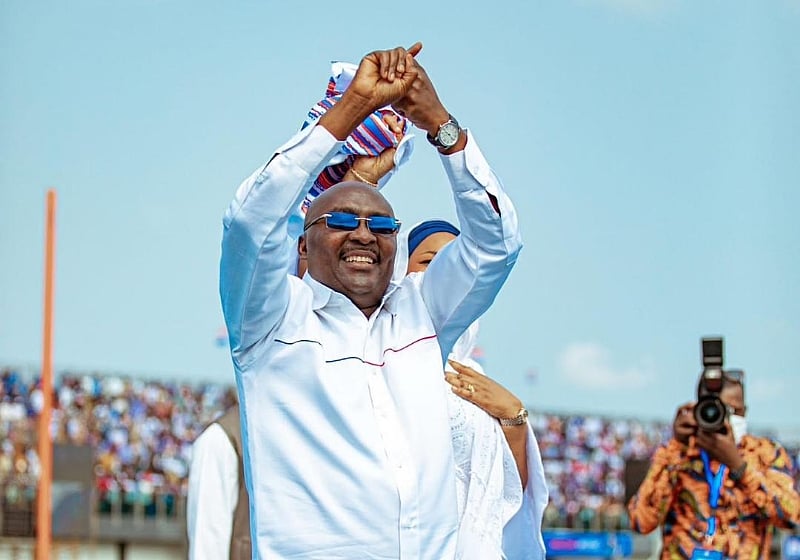Dennis Miracles Aboagye, an aide to former Vice President Dr. Mahamudu Bawumia, has issued a strong caution to the New Patriotic Party (NPP) against overlooking Dr. Bawumia’s significant electoral performance in the 2024 presidential primaries and the potential advantages it offers for the party’s future prospects. Aboagye argues that Bawumia’s attainment of 41.7% of the votes in the recent NPP primaries provides a substantial foundation for the party to build upon in the 2028 elections, a foundation considerably stronger than any potential first-time aspirant could offer. He emphasizes that abandoning this established base of support in favor of an untested candidate would be strategically unwise and could jeopardize the NPP’s chances of regaining power.
Aboagye’s argument centers on the historical trend in Ghanaian politics, which demonstrates that consistent presentation of the same candidate across multiple elections often yields positive results. He cites examples of prominent political figures, including former Presidents John Agyekum Kufuor, John Evans Atta Mills, Nana Addo Dankwa Akufo-Addo, and John Dramani Mahama, whose electoral successes were built on persistence and repeated engagement with the electorate. These figures demonstrate, according to Aboagye, that familiarity and sustained effort can significantly influence voter perceptions and ultimately contribute to electoral victory. He highlights Mahama’s recent political resurgence as a prime example of this phenomenon, arguing that Mahama’s consistent presence on the political scene and persistent engagement with the electorate played a pivotal role in his return to prominence.
Aboagye’s analysis underscores the significance of name recognition and established voter base in Ghanaian politics. He contends that starting from scratch with a new candidate in 2028, effectively discarding the 41.7% of the party’s base that has already demonstrated support for Bawumia, would be a risky gambit. He posits that building a comparable level of support from zero would require substantial time, resources, and effort, potentially placing the NPP at a disadvantage against established opponents. Leveraging Bawumia’s existing support base, he argues, offers a more efficient and effective path to victory.
The argument for continuity extends beyond mere name recognition. Aboagye suggests that Bawumia’s strong showing in the primaries signifies more than just popularity; it indicates a substantial segment of the electorate that resonates with his political vision and message. Discarding this established connection, he warns, would not only mean forfeiting a significant portion of the NPP’s support base but also discarding the valuable insights gained into the electorate’s preferences and expectations. This established connection, he argues, provides a valuable springboard for future campaigns, offering a more targeted and effective approach to voter engagement.
The crux of Aboagye’s argument lies in maximizing established political capital. Bawumia’s 41.7%, he argues, represents a substantial investment in the future of the NPP. This investment, he emphasizes, should be nurtured and built upon, rather than discarded in favor of an uncertain prospect. Introducing a new candidate, while potentially offering a fresh perspective, carries the inherent risk of alienating existing supporters and requiring the party to expend significant resources to build a new base of support from the ground up. By sticking with Bawumia, the NPP, according to Aboagye, can capitalize on the existing momentum and consolidate its support, thereby streamlining its path to victory in 2028.
In essence, Aboagye’s caution to the NPP is a strategic argument based on a pragmatic assessment of the current political landscape and historical electoral trends. He advocates leveraging Bawumia’s established support base and name recognition as the most efficient and effective path back to power, thereby maximizing the party’s existing political capital and minimizing the risks associated with introducing a new and untested candidate. His argument emphasizes the importance of continuity and persistent engagement in Ghanaian politics, highlighting the potential pitfalls of abandoning a substantial base of support in favor of an untested alternative. The NPP, slated to elect its flagbearer for the 2028 general elections on January 31, 2026, faces a critical decision regarding its future leadership, a decision Aboagye urges them to make with the hard-earned lessons of political history in mind.














